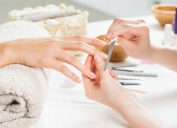If You're Over 50, Sleeping in This Position Is Aging You, Experts Warn
You might want to re-think your favorite sleeping position.
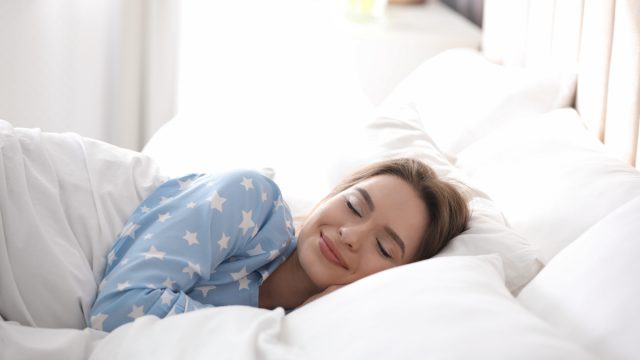
Have you ever wondered if how you sleep at night impacts how you look the next day? Of course, if you don't sleep well you'll look exhausted…but that's not what we're talking about here. The way you sleep—on your stomach, back, or side—could be working against you in the beauty department. So we talked to skincare experts to find out the one sleeping position you should avoid if you're over 50 and want to stay as wrinkle-free as possible.
READ THIS NEXT: If You're Over 65, This Hairstyle Is Aging You, Experts Say.
The wrinkles you get while sleeping are a different type.
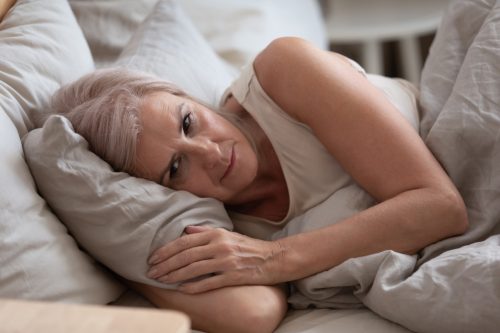
Wrinkles often come from laughing, smiling, sucking on a straw, or other consistent facial movements—but sleep wrinkles are a whole different ball game. "The most common type of wrinkles are dynamic wrinkles from the repeated contraction of muscles, when the overlying skin becomes etched, but sleep wrinkles come from a different mechanism," explains Beth Goldstein, MD, co-founder of Modern Ritual and president at Central Dermatology. She says sleep wrinkles form because of the "repetitive stretching and distortion of the skin" that comes with smashing your face against a pillow on a nightly basis.
A study published in 2021 backs Goldstein up, stating that people can develop sleep wrinkles because of skin distortion resulting from "mechanical compression during sleep." These wrinkles are different than laugh lines or crows feet because they're caused by force on the face in certain sleep positions.
The Sleep Foundation reports that "when one side of your face is pressed into the pillow, it stretches, pulls, and compresses your skin throughout the night."
A few sleeping positions can give you wrinkles.
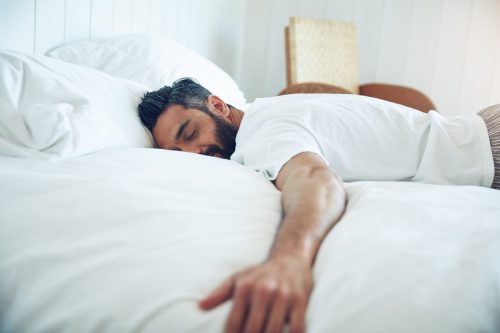
If you sleep on your stomach, you're putting an unnecessary stress on your skin—and when you're older, your skin no longer snaps back the way it did in your youth. "Wrinkles from sleeping on your stomach are thought to be due to repeated stress on the skin," explains Goldstein. "When you're young and have great collagen and supportive skin elements, they resolve shortly after awakening—but over time, the persistent stretching can indeed lead to sleep wrinkles."
On that note, if you did happen to sleep on your stomach when you were younger, there is less to worry about—it's as you age when it becomes more damaging.
READ THIS NEXT: For more beauty advice delivered straight to your inbox, sign up for our daily newsletter.
Sleeping on your side can also cause skin issues.
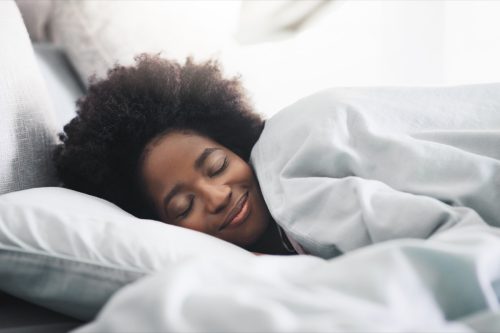
Goldstein warns that "sleeping on your side can also lead to some wrinkling." Certain sleeping positions won't cause wrinkles but can exacerbate them and can "expedite and intensify wrinkles on the chest, neck, and face," dermatologist Deanne Mraz Robinson, MD, told Allure."Wrinkling from sleeping position will be more obvious on more lax skin, which is why you'll see it on an adult's chest but rarely on a child's."
It can also lead to a loss of volume on the side of your face you sleep on. Cosmetically, you can usually resolve this issue with fillers, says Timothy R. Miller, MD. "Unlike wrinkles caused by facial expression most sleep wrinkles are not improved by Botox." Instead, people need fillers like Juvederm, Restylane or Belotero, laser resurfacing, and even face-lifts to make a difference.
Sleeping on your back is best.
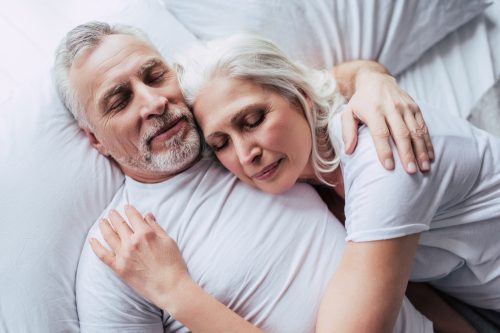
Snoozing on your back is the best way to avoid these sleeping wrinkles because the skin on your face will not rub against the pillow. However, if sleeping in this position is uncomfortable for you and will ultimately lead to getting a poor night's sleep, it may not be worth it. Goldstein says it's more important to get quality sleep than to avoid wrinkling—and if you're not sleeping well, "it may not be worth the tradeoff."
While sleeping on your back is the best way to avoid wrinkles, Goldstein warns it can aggravate reflux, apnea, and snoring, which can also make it difficult to get a good night's sleep. At the end of the day, she says "good sleepers look younger and have more hydrated skin."

